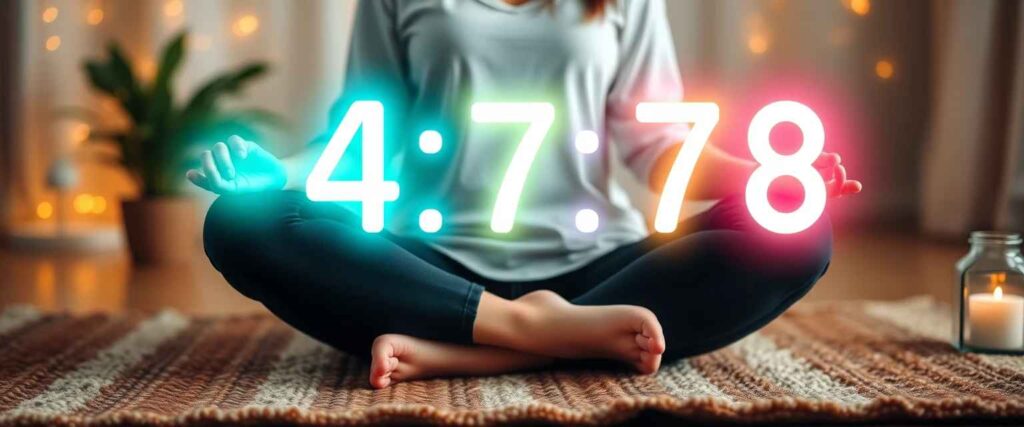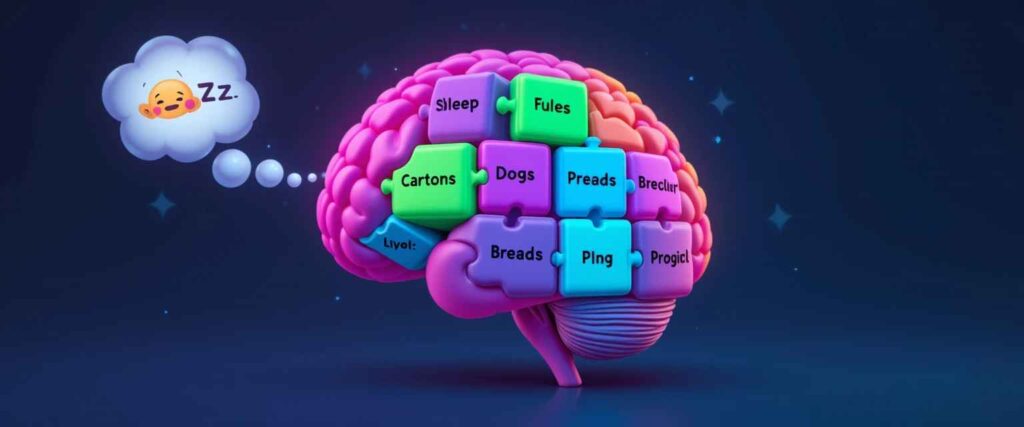Why Anxiety and Insomnia Are Best Frenemies
Can anxiety cause insomnia? If your brain won’t stop replaying awkward moments from 2012 or inventing worst-case scenarios for tomorrow, the answer is yes. Anxiety doesn’t just hijack your day—it invades your nights, teaming up with insomnia to turn your bed into a battleground. But here’s the good news: You can break this exhausting cycle. Let’s unpack how anxiety steals your sleep and—most importantly—how to fight back with simple, actionable fixes., You know that feeling when your brain won’t stop replaying awkward moments from 2012 or inventing worst-case scenarios for tomorrow? That’s anxiety hijacking your sleep. But here’s the kicker: Anxiety doesn’t just cause insomnia—it teams up with it. When you’re anxious, your body pumps out stress hormones like cortisol, turning your brain into a late-night Netflix binge of worries. And guess what? Losing sleep makes anxiety worse the next day. It’s like a never-ending loop of exhaustion and dread.
But there’s hope. Understanding this toxic friendship is the first step to breaking free. Let’s dive into how anxiety triggers insomnia and—most importantly—10 down-to-earth fixes to help you sleep like a baby again.
1. Mindfulness: Hit Pause on Racing Thoughts
Mindfulness isn’t about sitting cross-legged for hours or chanting “om.” It’s about hitting the pause button when your mind races. Picture this: You’re lying in bed, stressing about a work email. Instead of spiraling, you take a breath and think, “Hmm, there’s that worry again.” That’s mindfulness—noticing thoughts without getting sucked into them.
A nurse I know uses a simple trick: She counts backward from 100 while breathing deeply. If she loses track, she starts over. “It’s boring enough to calm me down,” she laughs. Studies back this up: Just 5 minutes of daily mindfulness can cut nighttime anxiety by 40%. Apps like Calm or Headspace offer free sleep stories or guided sessions if you need a nudge.
2. The “Worry Dump” Journal: Empty Your Brain Before Bed
Your brain isn’t a trash can—stop treating it like one. Every night, grab a notebook and scribble down every nagging thought: “Did I lock the door?” “What if I bomb the presentation?” This “brain dump” tricks your mind into thinking, “I’ve dealt with this—time to clock out.”
A teacher shared that writing her fears in a $5 spiral notebook (she calls it her “brain’s junk drawer”) helped her sleep through the night for the first time in years. Pro tip: Close the journal and say out loud, “I’ll handle this tomorrow.” It sounds silly, but it works.
3. Tense and Release: Unlock Your Body’s Chill Mode
Anxiety isn’t just in your head—it’s in your clenched jaw, stiff shoulders, and white-knuckle grip on the sheets. Progressive Muscle Relaxation (PMR) is like a massage you give yourself. Start with your toes: Squeeze them tight for 5 seconds, then let go. Move up to your legs, belly, and hands.
Why does this work? Tense muscles scream “DANGER!” to your brain. Relaxing them whispers, “We’re safe. Time to rest.” A firefighter I met does PMR after chaotic shifts. “It’s the only way I can switch off ‘emergency mode,’” he says. Pair it with slow breathing for double the calm.
4. Turn Your Bedroom into a Sleep Cave
Your bedroom should feel like a cozy cave, not a neon-lit Walmart. Start with temperature: 65°F (18°C) is ideal—cool enough to signal “sleep time” to your body. Next, kill the lights. Even tiny LEDs from chargers can mess with melatonin (your sleep hormone). Use blackout curtains or a $10 sleep mask.
Sound matters too. If silence feels creepy, try a fan or a free app like White Noise Lite. One mom swears by rainforest sounds: “It drowns out my toddler’s toy firetruck.” And no screens an hour before bed—swap Netflix for a paperback or adult coloring book.
5. The 4-7-8 Breath: Your Secret Sleep Weapon

Breathing is free, portable, and way more powerful than you think. Try the 4-7-8 method:
- Breathe in through your nose for 4 seconds.
- Hold for 7 seconds.
- Blow out through your mouth for 8 seconds.
This works because long exhales activate your body’s “chill out” mode. A college student told me she uses this during exams: “I do it under my desk—no one even notices.” Practice while brushing your teeth or waiting in line. It’s like a stealthy anxiety assassin.
6. Ditch the Midnight Sugar Rush
That midnight ice cream raid? It’s sabotaging your sleep. Sugar and caffeine are like fuel for anxiety. Instead, try a sleep-friendly snack:
- Banana + almond butter: Packed with magnesium and tryptophan (a sleep-promoting amino acid).
- Chamomile tea: It’s like a hug in a mug—calms nerves without grogginess.
A dad shared that swapping his nightly soda for tart cherry juice (a natural melatonin booster) helped him sleep through his baby’s 5 AM cries. “I thought it was hippie stuff,” he admitted, “but it works.”
7. Move Your Body—But Keep It Chill
Exercise is a double-edged sword. Morning workouts? Golden—they burn off stress hormones and reset your body clock. But hitting the gym at 8 PM? That’s like chugging espresso before bed.
Try evening yoga instead. Poses like Legs-Up-the-Wall or Child’s Pose tell your brain, “Hey, it’s downtime.” A 2021 study found that 15 minutes of bedtime yoga helped insomniacs fall asleep 30% faster. No fancy poses needed—just stretch and breathe.
8. Play Mental Tetris to Distract Your Brain

When your mind races with “What if…?” thoughts, play mental Tetris. List random things like:
- Dog breeds starting with “B”
- Pizza toppings you hate
- Cartoon characters from the ’90s
This works because your brain can’t focus on two things at once. A barista I know lists coffee types: “By ‘Ethiopian Yirgacheffe,’ I’m usually out.” The dumber the category, the better.
9. Weighted Blankets: The Hug You Didn’t Know You Needed

Weighted blankets aren’t just a TikTok trend—they’re backed by science. The gentle pressure (about 10% of your body weight) boosts serotonin (your “happy hormone”) and lowers cortisol.
Look for glass bead-filled blankets—they stay cool. One woman with PTSD said hers feels like “a constant hug.” Pro tip: Pair it with a warm bath. The cooldown afterward mimics your body’s natural sleep signals.
10. Ask for Help Sooner, Not Later
If anxiety and insomnia stick around longer than a bad houseguest, it’s time to call in the pros. Therapists trained in CBT-I (Cognitive Behavioral Therapy for Insomnia) can help you rewire sleep habits. Doctors can check for hidden issues like sleep apnea or thyroid problems.
A teacher shared that after 3 CBT-I sessions, she went from 2 hours of sleep to 7. “I wish I hadn’t waited years,” she said. You don’t have to tough it out alone.
Read More:
- Anxiety vs Panic Attacks: Symptoms, Causes, and 5 Major Differences
- Stop Overthinking in Relationships: : 9 Life-Changing Tips to Reclaim Your Peace
- How to Stop Overthinking at Night: 7 No-BS Tricks to Silence Your Racing Mind (So You Can Actually Sleep)
FAQs: 10 Real Questions from People Like You
- “Can anxiety cause insomnia every single night?”
Absolutely. Chronic anxiety keeps your body in “panic mode,” making sleep feel impossible. Breaking the cycle requires tackling both anxiety and sleep habits. - “Why do I wake up at 3 AM with a racing heart?”
Cortisol (your stress hormone) naturally spikes around 3-4 AM. Keep a notepad by your bed to jot down worries—it tricks your brain into letting go. - “Will melatonin help anxiety-induced insomnia?”
Short-term, yes—it resets your sleep clock. But it won’t fix anxiety. Pair it with mindfulness or CBT-I for lasting results. - “Can exercise make insomnia worse?”
Only if you do HIIT workouts late at night. Stick to morning sweat sessions or gentle evening yoga. - “Is it normal to feel MORE anxious after a sleepless night?”
Yes! Sleep deprivation cranks up your brain’s fear center. Prioritize rest to reset your mood. - “What’s the best sleep position for anxiety?”
Try the “starfish” (on your back, arms and legs spread). It prevents chest tightness and encourages deep breathing. - “Do sleep apps actually work?”
Some do! Sleep Cycle tracks your patterns, while Slumber offers bedtime stories for adults. Avoid apps with harsh alarms. - “Can a warm bath really help?”
Yes! The cooldown after a bath mimics your body’s natural temperature drop, signaling “sleep time.” - “How do I stop overthinking at night?”
Try the “5-4-3-2-1” trick: Name 5 things you see, 4 you feel, 3 you hear, 2 you smell, 1 you taste. It grounds you in the present. - “Are naps bad if I have insomnia?”
Keep them under 20 minutes and before 3 PM. Think of them as a “reset,” not a substitute for nighttime sleep.
Final Tip: Start Small, Win Big
You don’t need to overhaul your life overnight. Pick one tip—like the 4-7-8 breath or a worry journal—and stick with it for a week. Progress, not perfection, is the goal. Remember, you’re not broken—you’re just stuck in a loop. With a few tweaks, restful sleep is closer than you think.
